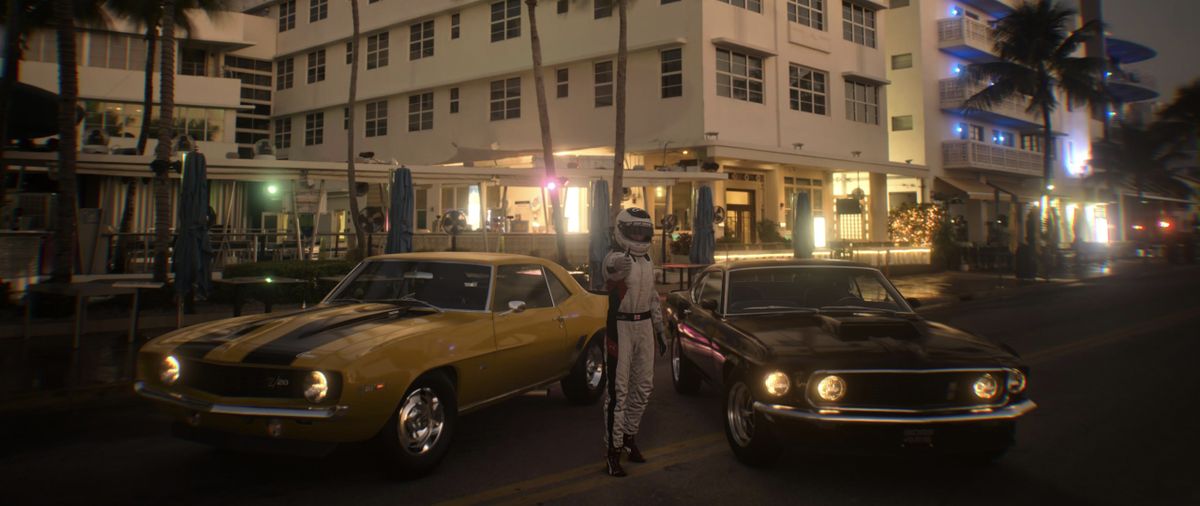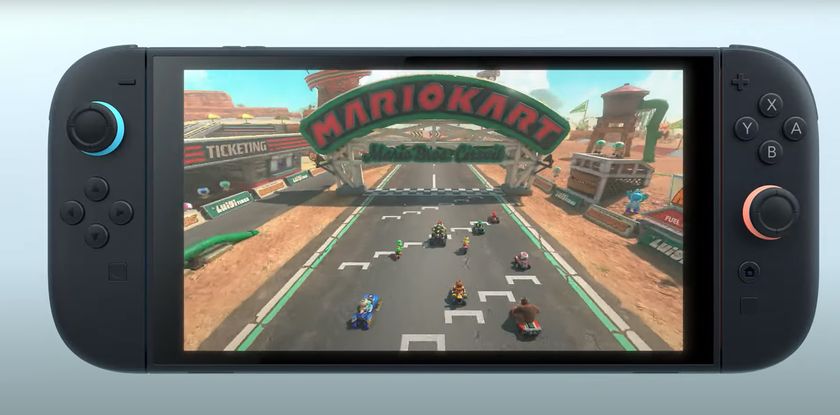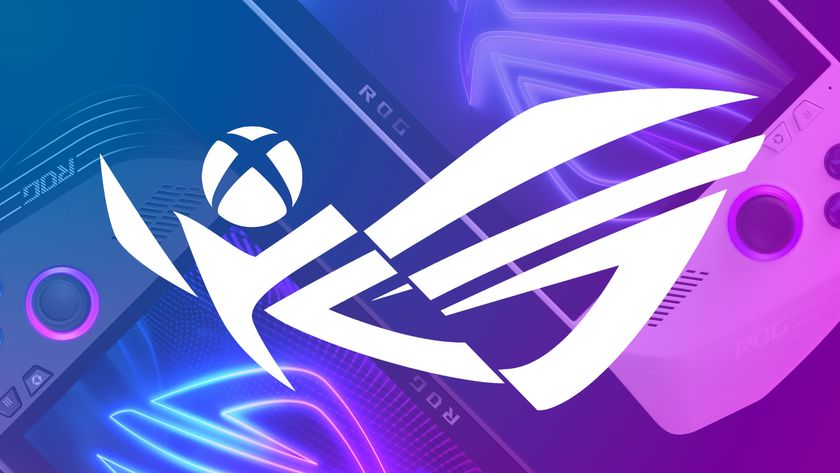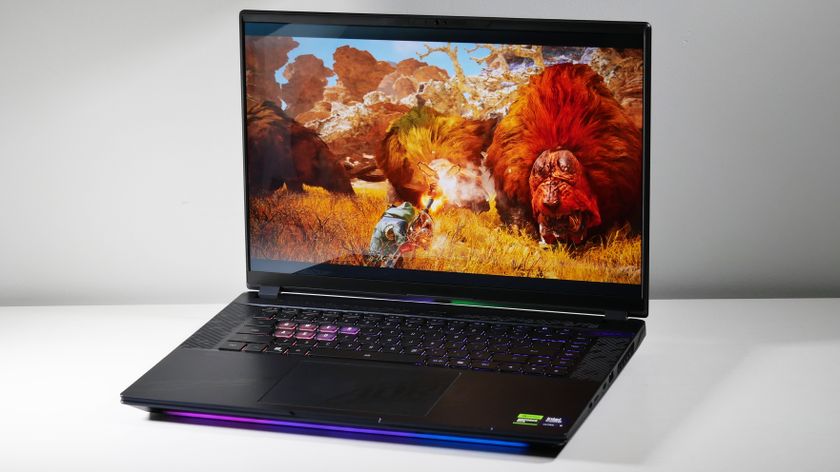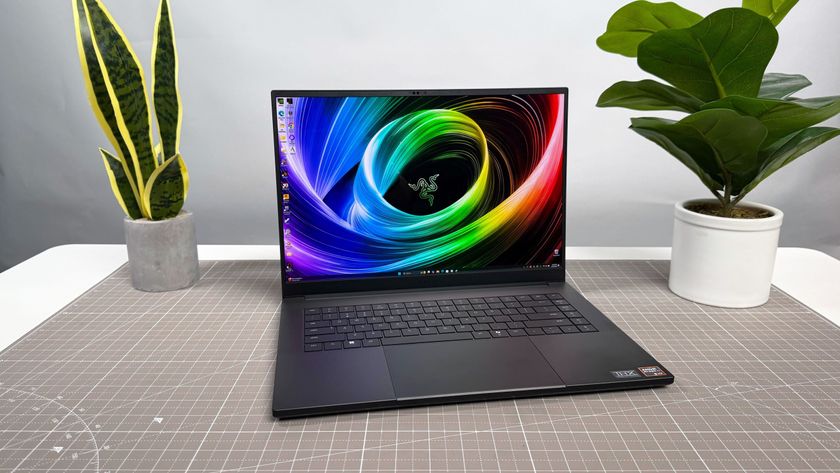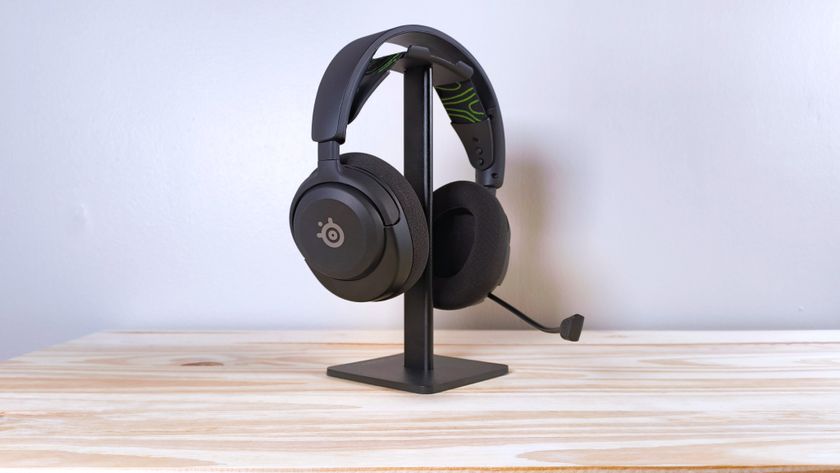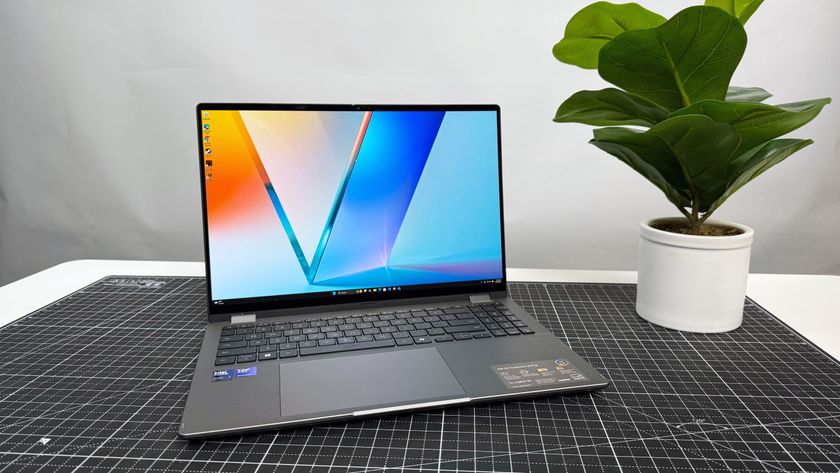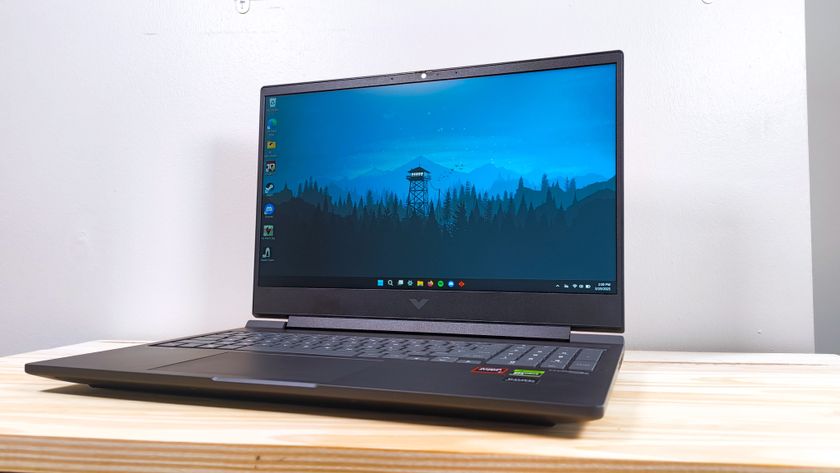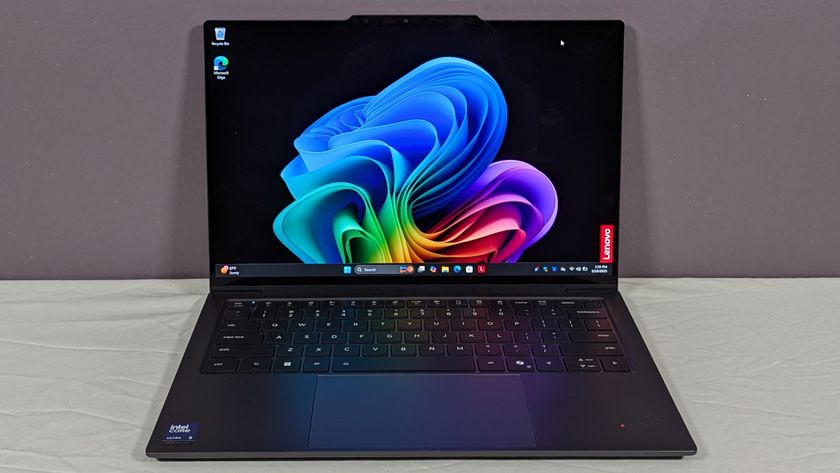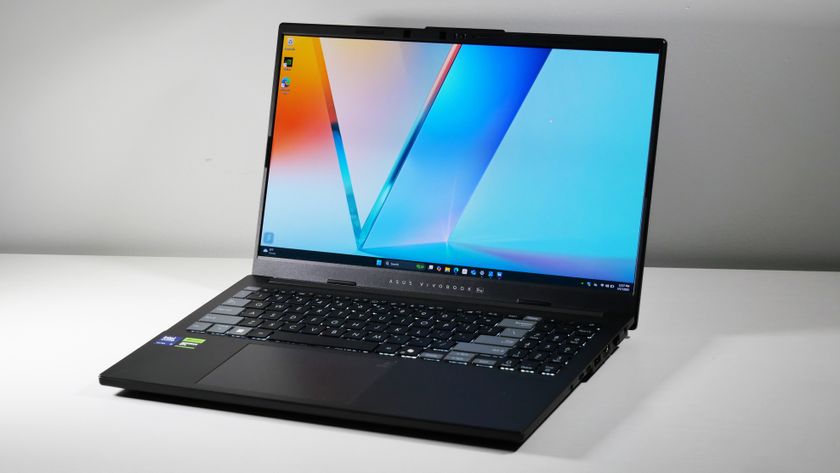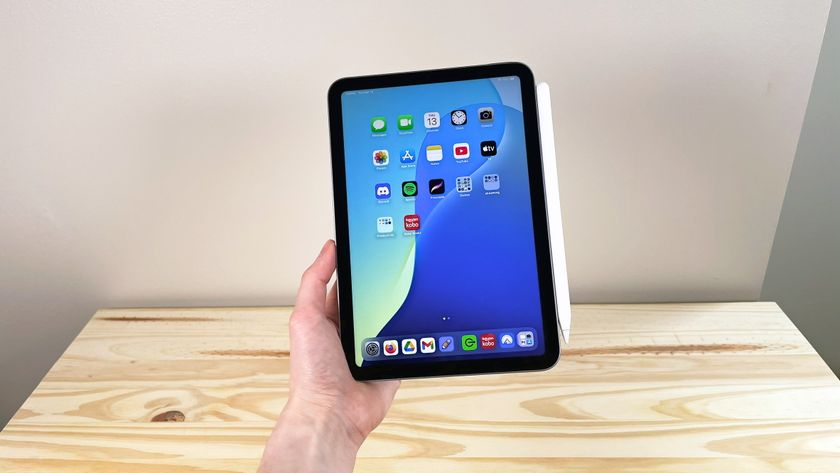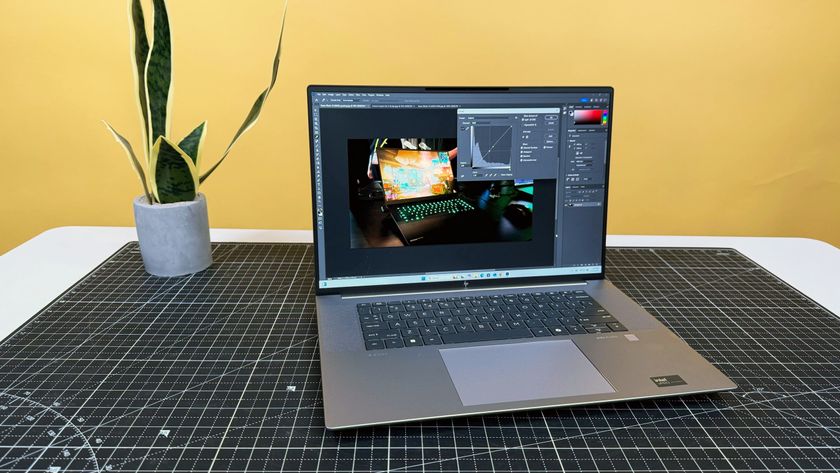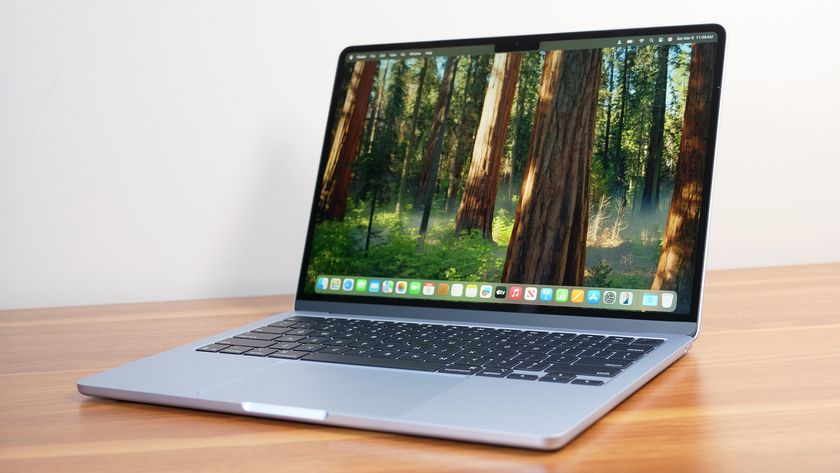Laptop Mag Verdict
Gran Turismo 7 is fine-tuned racing magnificence: one of the best sims and easily the best entry into the series. From the grounded physics and AI improvements to the wealth of content, incredible sound and gorgeous visuals, this is a game that all petrolheads need in their lives.
Pros
- +
Incredibly realistic racing simulation
- +
A feast for the eyes, ears and hands
- +
Far more human AI than past games
- +
Huge, well-paced single-player campaign
- +
Deeply addictive multiplayer
Cons
- -
Not for casual racers
- -
Damage is still just cosmetic
- -
Internet connection required for single player
Why you can trust Laptop Mag
Gran Turismo 7 marks the 25th Anniversary of the franchise, but the period of time that’s more important to me is 8 years and 2 months.
That’s the amount of time since we had a proper Gran Turismo game. GT Sport was good and all, but it wasn’t a fully-fledged series entry — just a really good multiplayer racer with an esports focus.
With GT7, Polyphony is making up for lost time with a massive single player campaign, combined with one of the most thoroughly researched and realistic racing simulators, and with the online modes of GT Sport, to make one of the most complete motorsport packages of the last decade.
But have the nagging issues that hang over from GT6 been resolved? Does the single player grind of the classic Gran Turismo game continue to be good in 2022? As you’ve probably guessed from the score, the answer is a resounding “yes,” but let me explain.
A word about reviewing Gran Turismo 7

Here I am, playing on my first PlayStation at my 8th birthday party, and by “birthday party,” I mean “play games by myself all day long.” But there’s one game and one important fact about me that isn’t in this photo — I come from a family of car and racing fans, and my Dad bought me the original Gran Turismo that same day.
Racing sims have been a big part of my life across many consoles for well over 20 years, so I know my way around one and can review it for what it is: a motor sporting mecca that celebrates everything about cars down to every painstakingly minute detail.
Now, if I was to factor in how accessible this racing simulator is, the score would probably go down. To anyone who is more of a rookie racer or a first timer, this is more of a four-star game. There is an easy difficulty and a wealth of driving assists to help you through the single-player campaign and the music rally is a really engaging way to grasp GT’s sim physics with countdown mechanics that send my mind back to the likes of Sega Rally and Daytona. Seriously, play it. It’s a lot of fun!
However, at its heart, this is still a game for the hardcore racing sim fans. Just because I’ve given it five stars does not mean it’s a perfect game for everyone. That’s setting your standards too high.
Really really really ridiculously good looking (and sounding and feeling)
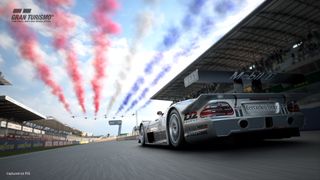
Let’s start by getting the technical details out of the way: all your classic Twitter troll bait for Xbots to beat Ponies over the head with and vice versa.
GT7 gives you the choice between prioritizing frame rate or ray tracing. Turning on the latter activates ray tracing in certain sections like the garage, replays, photo mode and certain scenes in GT Café. Gameplay in both graphics modes is identical: a rock solid 60 fps without ray tracing. The end result, as you’ve probably expected from Polyphony Digital, is a visual treat.
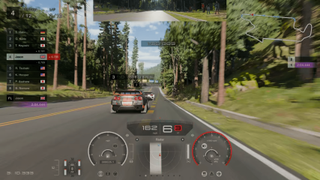
Of course, you notice the difference when ray tracing is turned on, in shimmering reflections, accurate lighting and the shiny refractions off car bodies. I hope that the devs find a way to make this work when racing and update the game with a 60 fps ray tracing mode, like what Insomniac managed to do in Spider-Man: Miles Morales, but it looks stunning in this current build.
But even when racing without ray tracing, each track explodes with vibrancy and detail down to the grain of the concrete, tire scuffs on the curbs, and lights shimmering on your car’s accurately-modeled interior as they pass by. Starry skies at night are distractingly beautiful and the lighting effects are fantastic.

That loving attention to detail comes with an incredible soundtrack. The Tempest 3D audio gets a workout here with the sheer ferocity of your engine igniting all around you and the ability to tell where your competitors are based solely on sound.
And musically, all of the classics are here alongside some new additions and reinvigorated covers of previous hits. I’m heartbroken at the lack of Buck Rogers by Feeder, but you can’t win them all, I guess.
But this feast doesn’t stop at the sights and the sounds. Put simply, Gran Turismo 7 stands head and shoulders above the rest of the PS5 lineup in making the best use of the DualSense controller. No longer are the vibrations just an indiscriminate rumble as you go round a corner, they can combine with adaptive triggers to tell you a lot about how your car is doing.
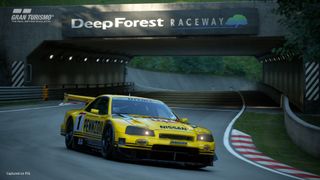
The triggers lock up to mirror your brakes locking up and you can feel the front wheels start to lose grip if you lose control coming into a corner too fast. Make no mistake, this is a game-changer that gives you a greater understanding of your driving, and when the car eventually does feel smooth going around a corner and you hit that sweet spot, it feels great.
This is a presentational tour de force across the board. And now, let’s talk about struggling to get up hills in a 1965 Fiat 500.
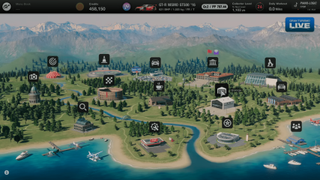
Lights out and away we go!
You see, strapping yourself into some souped-up monster and heading around high speed corners in excess of 200 mph is a helluva rush, but out of all the challenges I did, none quite nail the unique attraction of Gran Turismo quite like racing amongst 12 Fiat 500s.
On the surface, it’s hilariously bonkers watching you and your competitors reduced to a gentle jogging speed on a hill, but then you realize there’s tactics to staying in the slipstream, perfectly hitting the apex and being incredibly gentle with your steering, to be just slightly faster and start to overtake on this hill. Once you work it out, you’ll get an insanely strong feeling of satisfaction from managing to pass several cars by traveling 2 mph faster than them.
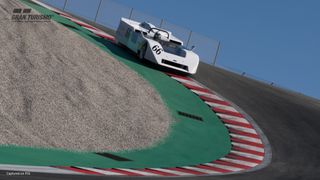
This is all part of the automotive physics simulator that has been intensely researched and tested to be as close as possible to the real thing — gathering feedback from the FIA Gran Turismo Championships, Michelin tires and even Lewis Hamilton, to ensure that even the smallest driving characteristics are taken into account.
Damage is still cosmetic-only, though, which does remove an element of the risk of driving poorly and means you can get away with some wall riding in single player. There are robust punishments for people who abuse this in multiplayer though, and none of this takes away from the internal need to take each corner perfectly.
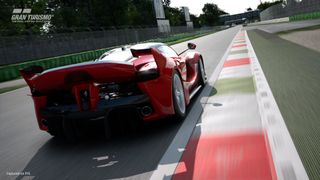
Not only are the cars modeled to drive as realistically as possible, the changing world around them has been given the same amount of attention. The time of day or night, the wind direction and weather conditions make a significant impact on the ground you drive upon.
In more detail, region-specific meteorological data, temperatures, humidity and air pressures are implemented to provide an unmatched simulation that pairs with realistic physics to make small but impactful effects like affecting track temperature, tire grip and rain puddles forming on parts of tracks that are prone to them.
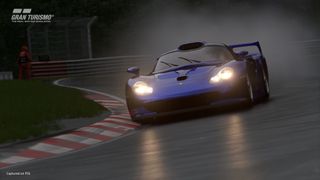
Finally, the last piece of the puzzle is competitor AI. Previously, single-player races became a futile competition of overtaking a column of cars that all followed exactly the same line. The Sophy AI is not part of GT7 yet, but in its current state, Polyphony made some huge improvements in this area. Each competitor reacts to each other and you, to make races feel a lot more human than before.
The end result of all this hard work is an ever-changing tapestry of racing challenges that will test you, but not to the point of feeling unfair. Any loss is not an exercise in futility. It is a lesson you learn and a growing experience to help you develop into a better driver. That is quite the achievement given the fact that many racers have become used to the safety net of a race rewind feature.
But if a challenge does feel too hard, fear not! There is the aforementioned easy difficulty and plenty of auto-drive aids that will be a massive help for newcomers.
Bursting at the seams
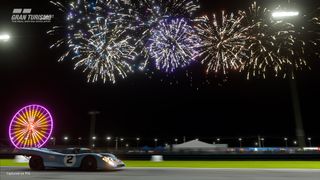
So, it should come as absolutely no surprise to anyone who watched the last State of Play that Gran Turismo 7 is packed to the gills with stuff to do: over 400 cars, over 90 track variations, license tests, tons of challenges, an in-depth livery maker, photo mode and so much more. In other words, GT Mode is back and this quest-based mode has never been better.
One of the key problems in past versions was that it was easy to get lost in the wealth of content and figure out a clear task list of what you need to do beyond the licenses. That’s where the GT Café comes in handy — splitting things out nicely into a set of menu books with challenges to complete and cars to collect.
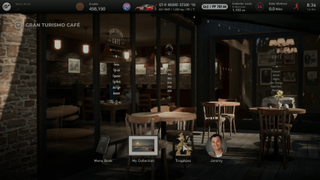
This highlights the main path through the campaign, which makes the whole Gran Turismo experience a lot more palatable for newcomers to enjoy. If you only have a little bit of time to play, it makes things clear about what you can do that’s most critical to your progression.
And with the completion of all car collection menu books, you get a detailed retrospective about the cars you’ve won, which really plays to my car-loving heart and will introduce fresh players to car culture in a nice way.
Finishing all these is technically the “ending,” but in reality, there are so many more races, championships, circuit experiences and unique mini games to complete. It’s almost like the menu books are meant to whet your appetite for the main course: the same old tick-box racing, fine tuning and grinding for new cars and new trophies. Its sheer addictiveness proves that the formula is far from dead. For example, I was typing this at 3am after losing track of the time.
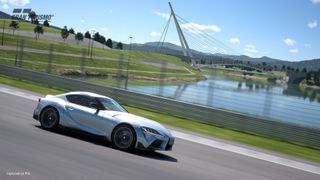
One little request I have to Polyphony: please remove the requirement to always be online for the single player aspects of the game. I get there are news feeds that are loaded in on the nicely-presented world view menu and that’s where you access multiplayer, but come on. There are offline players, too!
Speaking of multiplayer, my oh my, there’s a lot of fun to be had.
The Gran Turismo Sport online mode makes a triumphant return, alongside the harsh-but-fair regulations and subsequent penalties that keeps every race feeling like an honest competition. Word to the wise: don’t fall into bad habits when playing single-player, such as running all four wheels over the track boundaries to cut a corner. Those habits will cross over into the multiplayer and you will pay dearly for it.
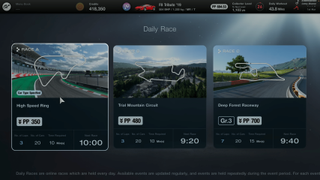
For those looking for a little less of the seriousness and more racing, you can create lobbies to muck about in and race your friends, but the most important addition is Meeting Places. Each track has a permanent lobby with no regulations and no racing conditions: it’s simply a place where you can go drive and talk to other players.
The team imagined this feature being used to show off liveries. To me, it became a friendly community that helped me improve my cornering around the sharp downhill chicane through advice from like-minded people. It’s a feature most people will glaze over, but one that is pretty awesome.
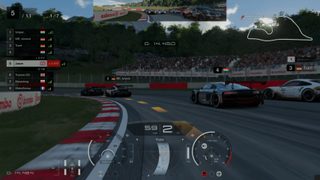
Also, special shout-out to the fast loading times. That is such a breath of fresh air compared to waiting nearly a minute for tracks to load up in old games.
Bottom line
Gran Turismo 7 is everything I wanted it to be and more: a celebration of cars, car culture and the art of racing. This is one of the best PS5 games available today.
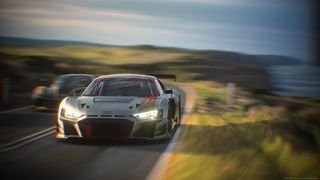
It’s drop dead gorgeous, the automotive simulation physics are meticulously researched and incredibly grounded, there is so much to sink your teeth into and it answers a lot of the problems players had with previous iterations.
The AI has been upgraded, GT Café gives you a nice, clear route throughout the campaign and, thanks to Polyphony’s break from mainline GT games with Sport, multiplayer is simpler to jump into and drastically improved competitively.
The five out of five score does not mean it’s completely flawless. Car damage is still only cosmetic, the always-required internet connection is a little puzzling for offline modes and, as I said up top, this isn’t going to be a game for everyone.
But for those who love this sport, the temple of automotive brilliance is here. Come and worship.

Jason brought a decade of tech and gaming journalism experience to his role as a writer at Laptop Mag, and he is now the Managing Editor of Computing at Tom's Guide. He takes a particular interest in writing articles and creating videos about laptops, headphones and games. He has previously written for Kotaku, Stuff and BBC Science Focus. In his spare time, you'll find Jason looking for good dogs to pet or thinking about eating pizza if he isn't already.
